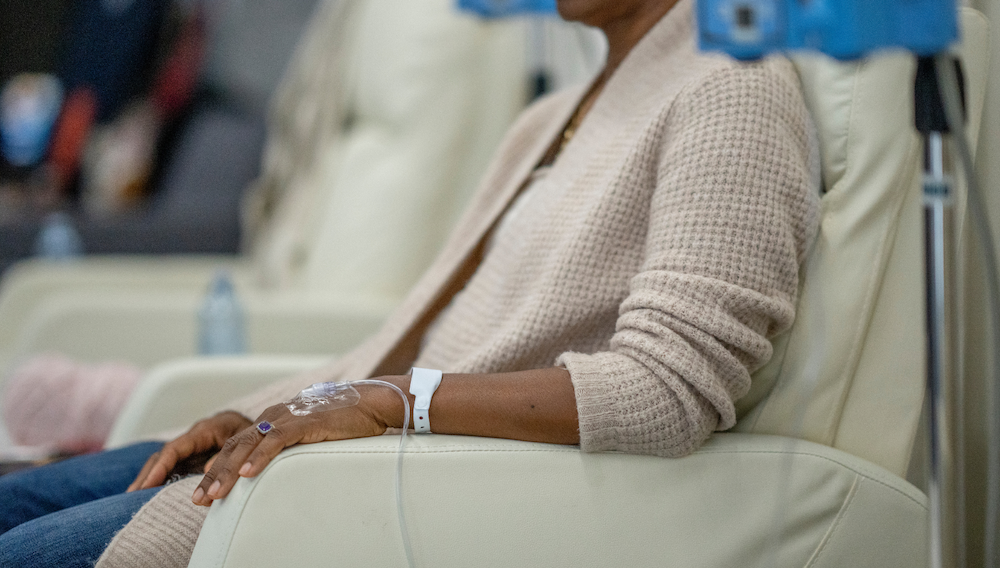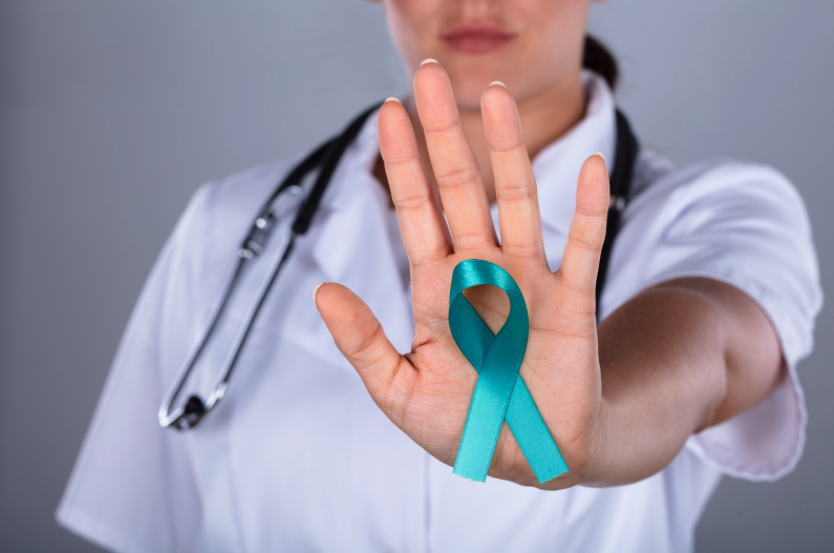The ovaries are two small organs that store eggs and produce hormones. As with any tissue in the body, cancer can form on the ovaries when abnormal cells begin to grow. Because of the position of the ovaries deep in the abdomen, there may be few noticeable symptoms of ovarian cancer, making it difficult to diagnose.
According to the National Ovarian Cancer Coalition (NOCC), an estimated 21,000 women will be diagnosed with ovarian cancer in 2021. As with any disease, it can help you to be knowledgeable about this disease. Following are a few things you need to know about ovarian cancer.
Symptoms Tend to be General in Nature
The symptom list for ovarian cancer tends to be very general in nature: bloating, weight loss, fatigue and back pain all make the list. Changes to bathroom habits, including constipation and frequent urination, can also be associated with ovarian cancer. These symptoms could also be indications of other less serious conditions or diseases. For this reason, you should pay attention to your body and let your doctor know about any concerning symptoms. You should also receive an annual pelvic exam when you visit your OBGYN, as it is one of the few simple ways to detect changes to the ovaries.
Ovarian cancer may be associated with inherited genes. BRCA1 and BRCA 2 genes increase the risk of ovarian cancer as well as breast cancer. If someone in your family has ovarian cancer, you may be at increased risk. At West Des Moines OB GYN we are able to screen and test for BRCA1 and BRCA2. Genetic counseling can clue you into your specific cancer risk factors. Other risk factors include early menstruation or late menopause, endometriosis, obesity, older age, and not bearing children.
Evidence exists that birth control pills reduce the risk of developing ovarian cancer. The risks of taking birth control pills should be weighed against the potential benefit of reducing your risk of ovarian cancer. Discuss any concerns you have with your OBGYN.
Ovarian Cancer is Difficult to Detect
For cervical cancer, a pap smear can help detect cancer in the tissue. However, ovarian cancer is not as easy to diagnose and there is no screening test available. The ovaries are small organs located deep in the abdomen, and the cancerous cells may be very small, as well. As such, it may take several doctor visits, imaging tests, and blood tests to diagnose ovarian cancer. It may even require removal of the ovaries to confirm the diagnosis.
Ovarian cancer comes in several forms. Epithelial ovarian cancer is the most common and has several subtypes. Stromal tumors are rare and usually can be diagnosed at an earlier stage. Germ cell tumors tend to occur in younger women.
A reliable screening test for ovarian cancer does not exist, so your OBGYN will perform a pelvic exam to palpitate the area for an increase in the size of your ovaries. Vaginal ultrasound offers another method of viewing the ovaries and other internal organs. CT scans may also provide views of your abdomen and pelvis for your doctor to review. A blood test can also identify the presence of CA-125, a protein often found in higher levels with ovarian cancer, but it is not always associated with the disease. If other methods of detecting ovarian cancer fail, diagnostic surgery will be performed.
Treatment is Aggressive
Ovarian cancer typically requires surgical removal of the ovaries and other cancerous tissue as well as chemotherapy. One or both ovaries may be removed. The uterus, fallopian tubes, fatty tissue, and lymph nodes may also come out in a complete hysterectomy.

To ensure the elimination of the disease, chemotherapy treatments are used to destroy any remaining cancer cells. Pills, IV treatments, or abdominal infusions deliver the drugs into your system. Other treatment options include immunotherapy and hormone therapy. Immunotherapy uses your immune system to fight the cancer. Cancer cells may hide from your immune system because they produce certain proteins that the immune system ignores. Immunotherapy disrupts that to find the cancer cells.
Ovarian Cancer Survival Rates are Excellent When Detected Early
The NOCC states that the five-year survival rate for ovarian cancer is 93 percent when the disease is diagnosed and treated in its earliest stages. With a cancer diagnosis, there is absolutely no reason to lose hope. The medical community has worked hard to improve cancer treatments. Women who get ovarian cancer today can expect good outcomes. The greatest success usually comes when women know their bodies and pay attention to signs that something isn’t right. That principle applies to ovarian cancer and any of the other cancers in women.
So, what can you do about the risk of ovarian cancer? Start by discussing and updating your doctor on any new cancer detected within your family. Also, younger women may wish to discuss the birth control pill with their OBGYN, as that can reduce the risk of ovarian cancer. And, as always, we encourage you to address health concerns as soon as possible to avoid them becoming worse. Note your symptoms and when you experience them, and contact your doctors to address them and discuss treatment options.
Take care of yourself, pay attention to persistent symptoms, and contact your doctor at West Des Moines OBGYN to take control of your health.


